Author: Helen Crawford, 19 August 2016
When communism fell in Albania and Christianity began to grow, people were hungry for the Bible. Oldi, who became a Christian as a teenager, first read the Bible in the language of his missionaries. But now he's working on a translation in his native tongue.
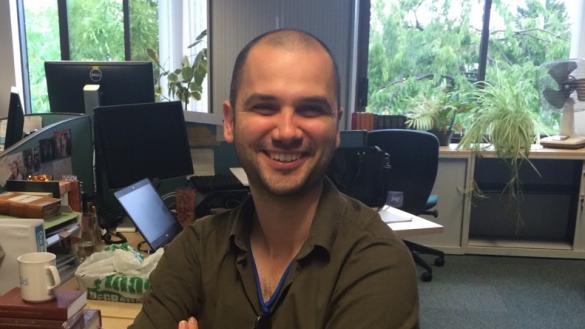 Oldi Morava grew up under the communist regime in Albania. When the system fell in 1990-91, missionaries flooded the country. Like many places that experience rapid growth of Christianity, there was a call for new Bible translations.
Oldi Morava grew up under the communist regime in Albania. When the system fell in 1990-91, missionaries flooded the country. Like many places that experience rapid growth of Christianity, there was a call for new Bible translations.
‘In places where Christianity is booming, you get young people who are very enthusiastic about their faith,’ Oldi explains. ‘They go to church and they really want to engage with the Scriptures but there isn’t a way of this happening. They have a burning desire in their relationship with God but there isn’t the fuel to keep that enthusiasm going.’
For Oldi, his first experience of reading the Bible was in a foreign language, the languages of missionaries — in this case, Italian and English.
‘That provided a good starting point,’ he says, ‘but what you miss reading Scripture in a language you feel at home in is that intimacy in your relationship with God. It’s different when you hear God through Scripture in the language you use in day to day life.'
‘There were some translations from 1800s but we didn’t really have a Bible translated from the original languages that everyone could understand,’ Oldi says.
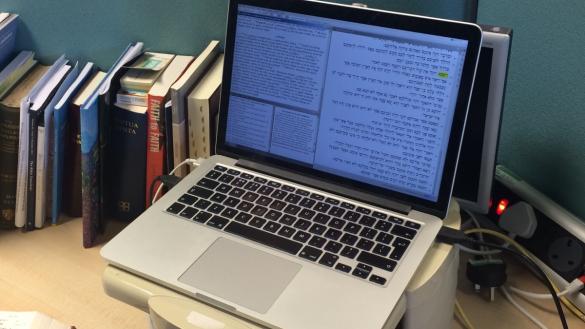 In 2001 Bible Society of Albania set about work on a new translation. They were keen to create a Bible that could be used by everyone: not made by one denomination of missionaries solely for one particular church.
In 2001 Bible Society of Albania set about work on a new translation. They were keen to create a Bible that could be used by everyone: not made by one denomination of missionaries solely for one particular church.
In 2007 a New Testament translation was completed and released. When work began on the Old Testament, Oldi — who had by this point studied Theology in England — was invited to join the translation team.
Equally committed to the interdenominational, or interconfessional, approach, the new team consists of Oldi, a Protestant, and a translator from both the Orthodox Church and the Catholic Church. They’ve been working on an Albanian translation of the Old Testament since 2010.
It’s a noble task, but not one without challenge. ‘Very often, the difficulties we have are with theological terminology, which probably in English you take for granted because you’ve got a long history of Christian tradition,’ Oldi says.
Words like ‘justification’, ‘redemption’ and ‘grace’ are all difficult to translate when you’re working in a place that doesn’t have these concepts as part of their tradition. ‘Sometimes you end up using two or three words to come close to the meaning of the first word.’
These are all questions that are wrestled with as a team — and working with people from other confessions means you get a breadth of perspective.
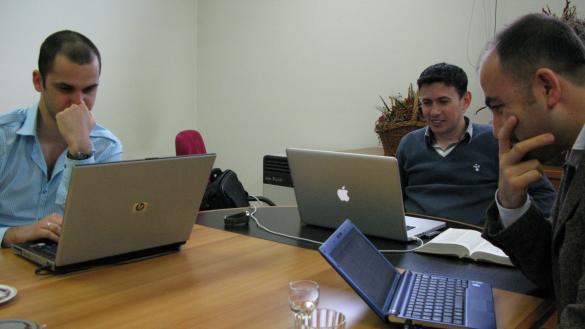
Oldi and his translation team meet to discuss their work
‘It doesn’t matter what church tradition you come from, you will still be blind to some kind of theology that you have never been exposed to,’ Oldi says. ‘Translating the Scriptures with brothers and sisters who come from different traditions can make you aware of other things. This is the beauty of working in an interconfessional team.’
And because there are many ways a verse, or a word, can be translated, it results in some good debates, too. ‘We tend to have a very fiery interaction but at the same time are good at finding an agreement in the end.’
This all means that, when the Old Testament is finished, for the first time ever, Albania will have a contemporary Bible translation made for the whole church, not just one particular denomination or confession.
‘It’s a great privilege. When you think that God is going to use that translation to speak to individuals and communities and change their lives, and you are an instrument in that — that’s what keeps you going when you’re undertaking such a big task!'
Share this:
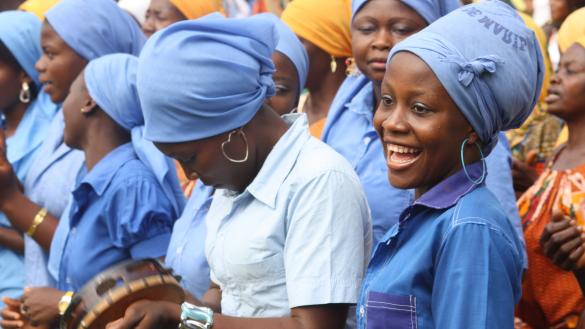
What happens when a village gets the Bible in its heart language
Christianity has been part of the Beembe culture for 100 years but until recently there was no Bible in their language.
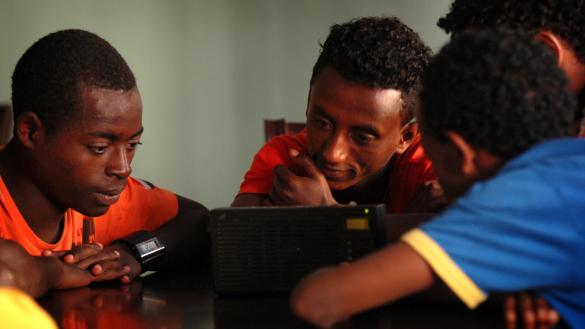
From living on the street to studying at university
We first told you about Tesfaye in 2011. Now he’s in his third year of uni and he’s still reading the Bible.
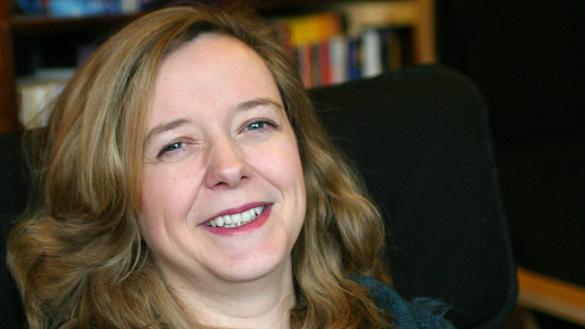
7 top tips for reading the Bible
The Bible can seem overwhelming, boring and difficult, but a few basic tips can help you understand it more. Try these…